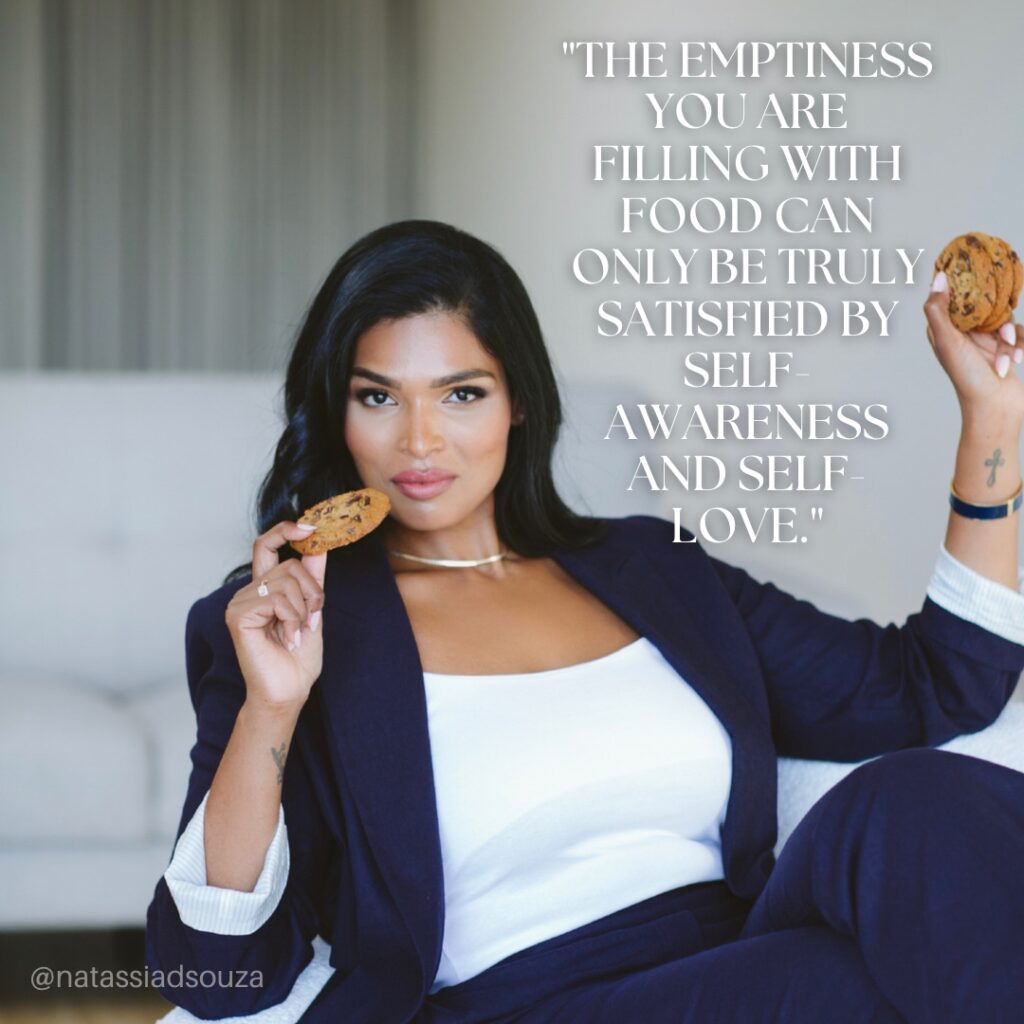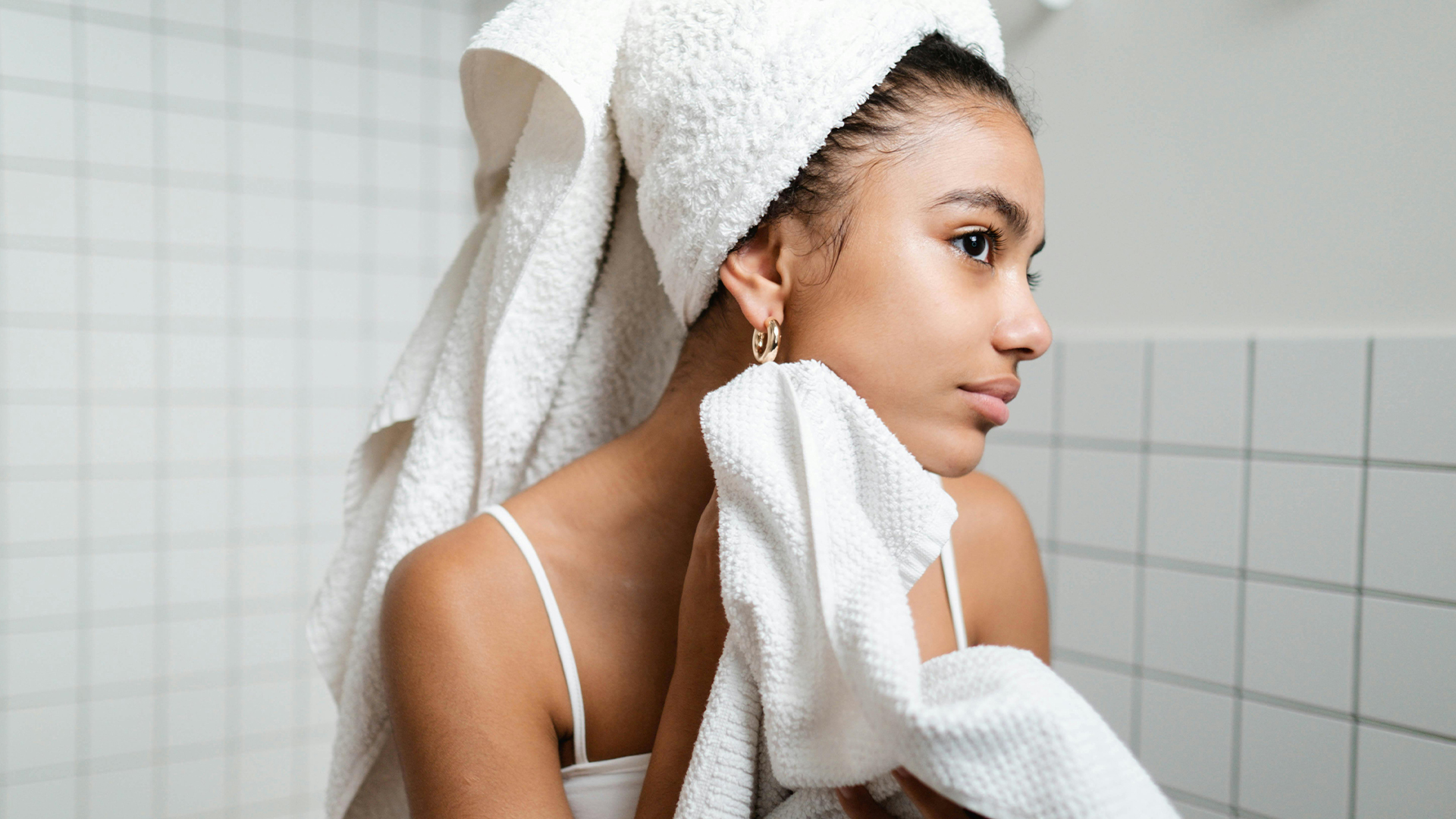Natassia is a dedicated professional in the world of emotional eating and sustainable weight loss. With a profound understanding of the emotional aspects of eating behaviours, she guides individuals toward transformative change.
Natassia’s ultimate goal is to ensure no one faces their wellness journey alone. Through her work and her podcast, “Taking The Weight Out of Weight Loss,” she empowers others to rewrite their relationship with food, fostering a community of support and understanding. What sets Natassia apart is her empathetic approach. She creates a safe space for individuals to discuss their struggles, erasing the stigma around emotional eating and promoting self-acceptance.
Natassia’s story is one of transformation and triumph, offering hope and guidance to those seeking lasting change. We sat down with the mogul as she shared some insights into the unique challenges that men might face when it comes to embracing wellness practices:

Zenith: What motivates you to make a positive changes in your Well-being?
Natassia D Souza: The desire for a better quality of life and a sense of personal fulfilment initially motivates me to make positive changes in my well-being. This initial motivation got me started on the journey of self-improvement. However, it’s the establishment of daily consistent habits, driven by the understanding that small actions accumulate into significant results, that keeps me motivated and ensures lasting positive changes in my overall well-being.
What’s your coaching philosophy to help your clients to achieve their goals?
My Coaching philosophy involves the connection between emotional well-being and physical health.It emphasises the importance of self awareness and self-compassion. Emotional eating often stems from complex feelings and triggers, and I believe in empowering my clients to identify and understand these emotions without judgment. By fostering self-awareness, I help them develop healthier coping mechanisms that don’t involve food, ultimately aiding in their journey towards sustainable weight loss.
How do you help clients set realistic and achievable wellness goals?
I set gradual and realistic lifestyle changes for my clients rather than extreme diets or quick fixes. I understand that long-term success involves developing healthy habits that can be maintained over time. By guiding my clients towards balanced nutrition, regular physical activity, and stress management techniques, I empower them to make sustainable changes that contribute to their overall well-being.
Natassia, on your Instagram, you address various aspects of wellness and emotional eating. How do you perceive the presence of taboos specifically related to men’s wellness in today’s society?
Unfortunately taboos surrounding men’s wellness still exist in today’s society, often discouraging open discussions about emotional struggles and self-care. These norms can hinder men from addressing their mental and emotional well-being openly, reinforcing outdated stereotypes of masculinity.
Could you share some insights into the unique challenges that men might face when it comes to embracing wellness practices and seeking support for emotional eating? Ego, masculinity
Certainly, men can face unique challenges when it comes to embracing wellness practices and seeking support for emotional eating. Three key components contributing to these challenges include ego, traditional masculinity norms, and societal expectations:
– Ego: Many men are raised in societies that encourage them to be self-reliant and tough. Admitting to struggles like emotional eating may be seen as a threat to their ego or self-image as strong independent individuals.
– Masculinity Norms: Traditional masculinity norms often emphasise stoicism and emotional restraint. Men are frequently discouraged from expressing vulnerability or discussing their emotions openly. This can make it challenging for them to acknowledge emotional eating as a genuine concern and seek support.
– Societal Expectations: Society sometimes places unrealistic expectations on men to maintain a certain body image or level of physical fitness. These expectations can lead to feelings of shame or inadequacy when it comes to wellness practices.
Your approach to wellness appears to be holistic and inclusive. How do you create a safe and welcoming space for men to discuss their emotional well-being and relationship with food, despite potential taboos?
Creating a safe and welcoming space for men to discuss their emotional well-being and relationship with food, despite potential taboos, involves several key strategies that prioritise inclusivity, empathy, and destigmatisation. I approach this by addressing the following:
A Non-judgmental Environment: I create a non-judgmental and accepting environment where men feel comfortable sharing their thoughts and emotions without fear of criticism
Language and Framing: I use language that’s inclusive and destigmatizing. Avoid reinforcing traditional gender stereotypes or assumptions.
Diverse Role Models: I also highlight stories and experiences of men who have successfully navigated emotional challenges and developed positive relationships with food. Representation matters, and showcasing diverse role models can inspire others to open up.
Anonymity and Privacy: I also offer options for anonymity if participants are uncomfortable revealing their identities. This can help alleviate concerns about social judgments and encourage more candid sharing.
Your Instagram content promotes body positivity and self-acceptance. How do you encourage men to embrace these concepts and challenge any body image taboos they might encounter?
My Instagram content champions body positivity and self-acceptance, aiming to empower all individuals, including men, to embrace their bodies. By sharing diverse representations of male bodies and openly discussing personal struggles, I challenge societal body image norms. Through candid conversations and highlighting stories of men who have overcome body image taboos, I create a supportive community that fosters self-love and dismantles harmful stereotypes.
Have you noticed any shifts in recent years regarding the openness of men to engage in discussions about their wellness and emotional health? How has your coaching contributed to these changes?
Yes, there has been a noticeable shift in recent years with men becoming more open to discussing their wellness and emotional health. This change is evident as men are increasingly willing to address their emotional needs and seek support. In my coaching practice, I’ve contributed to these changes by creating a safe and non-judgmental space for men to explore their emotions, encouraging open dialogue, and promoting the importance of holistic well-being. This approach has empowered men to break down traditional stereotypes and embrace a more balanced and healthier view of masculinity.
Your coaching involves fostering a healthy relationship with food. How do you navigate conversations with men who might feel ashamed or hesitant to discuss their emotional eating struggles due to societal expectations?
In my coaching approach, I strive to create a safe and non-judgmental space for all clients to openly discuss their struggles with emotional eating. When engaging with men who may feel ashamed or hesitant due to societal expectations, I emphasise that emotional eating is a common human experience and not exclusive to any gender. By emphasising that seeking help is a sign of strength, addressing the emotional aspects of their relationship with food becomes an essential step towards overall well-being. Through empathy, understanding, and guidance, I work towards dismantling barriers and helping them develop a healthier relationship with food and their emotions.
What advice would you offer to men who are interested in seeking emotional eating coaching or improving their overall wellness but feel held back by societal taboos or pressures?
For men who are interested in seeking emotional eating coaching, my advice is to prioritise self-care and well-being above societal expectations. Recognise that seeking help is a sign of strength, not weakness. Surround yourself with a supportive network of friends, family, or professionals who understand and respect your goals. Remember that taking control of your emotional health and wellness is a positive step towards leading a more fulfilling life, and it’s essential to break free from any societal norms that hinder your progress.
Looking ahead, what are your aspirations for promoting men’s wellness and emotional well-being while dismantling taboos that might still exist?
In the world of advancing men’s wellness and emotional well-being, my aspirations are anchored in fostering open dialogues and dispelling lingering taboos. I aim to cultivate safe spaces where men can openly discuss their feelings, vulnerabilities, and challenges without fear of judgment. By leveraging various platforms, including online forums, workshops, and community gatherings, I seek to raise awareness about the importance of mental health and self-care among men. My broader goal involves collaborating with mental health professionals, influencers, and organisations to develop targeted resources and campaigns that address specific issues faced by men, such as toxic masculinity and societal pressures.














